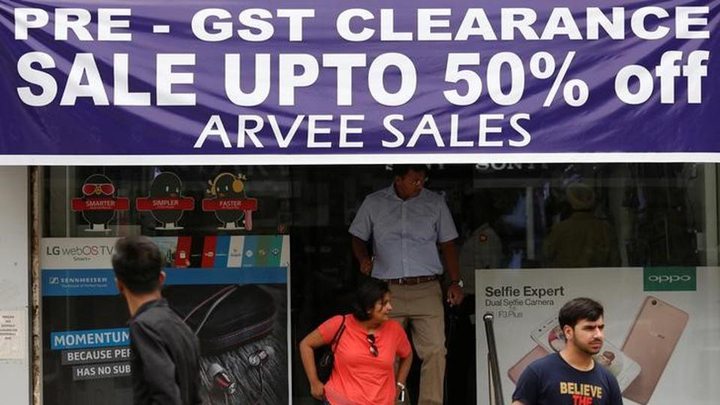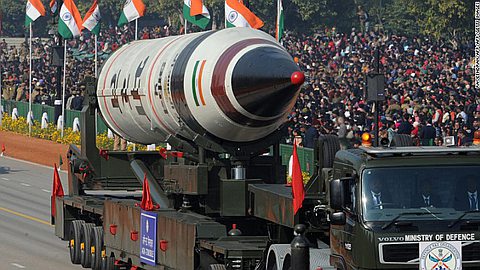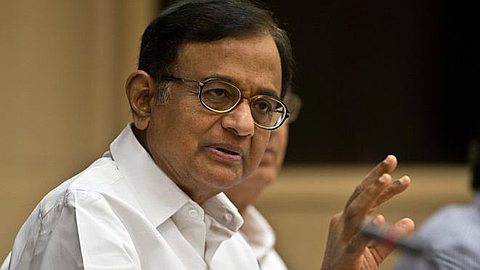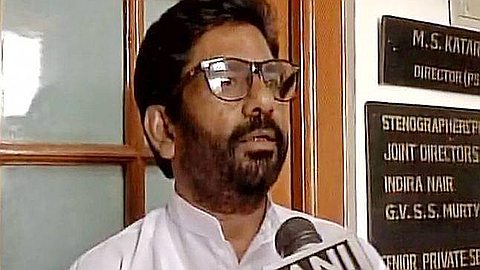India’s set to roll out its biggest tax reform in 70 years.

Indian businesses brace for chaos amid GST tax reform.
Indian businesses are bracing for the worst as the country storms ahead with its most ambitious reform in decades - transforming the world's fastest growing major economy into a single market.
At midnight on Saturday, July 1, the long-awaited goods and services tax (GST) will be rolled out, replacing about 20 federal and state taxes and unifying the country's $2 trillion economy.
Prime Minister Narendra Modi's government promises the new system will not just simplify trade by replacing more than a dozen levies with one tax, but combat corruption and enrich state coffers by bringing the informal economy into the digital era.
But many businesses and retailers complain they are ill-prepared for the massive changes and about what to charge.
Mamata Banerjee, the leader of the All India Trinamool Congress, warned of a "chaotic situation," adding that millions of small businesses were not yet ready to file multiple tax returns.
Thousands of textile mills and retailers across the country went on strike this week to protest the tax. Small businesses in particular are unhappy at the extra demands made of them to be tax compliant during the change-over.
"There are different rates for a mobile set, charger and headphones - all of which come in one box," said Praveen Khandelwal, secretary general of Confederation of All India Traders, pointing to one such example.
"What tax rate will be applicable in such a scenario? We don't know yet."
A slew of basic staples like fresh vegetables and milk are exempted, along with less obvious items like temple offerings, the national flag and human hair.
So-called "sin" goods like tobacco will be slapped with extra levies, while states will still be allowed to separately tax some products including alcohol, petrol and aviation fuel.
India has one of the lowest tax-to-GDP ratios in the world and these changes, though initially painful, will have a "significant impact" on compliance, said Neelkanth Mishra, managing director at Credit Suisse.
"India is like a house under renovation. While the new parts are being built, no one will be happy," he told AFP.
The sweeping reforms comes less than a year after Prime Minister Narendra Modi devalued India's largest banknotes in a sudden move designed to outmanoeuvre tax cheats, but was blamed for a crippling cash shortage and slowing growth.
To avoid a similarly rough landing, the government has trained 60,000 tax bureaucrats and run sessions with private accountants to ensure everyone is up to speed on the finer points of the GST.
A GST Council has spent months thrashing out the final legislation, which was blocked in parliament for a year until an amended version was approved.
India’s set to roll out its biggest tax reform in 70 years. Here’s what it means
One of India's most ambitious economic reform plans in 70 years will ultimately boost tax receipts and provide simplicity for businesses, but the true impact may not be felt for at least a decade due to implementation challenges, experts said.
After several rounds of deadlock in the parliament, India is set to roll out the Goods and Services Tax (GST) on July 1, replacing a thicket of indirect central and state levies that critics argue have blunted economic competitiveness and hobbled efforts to lift more out of poverty.
Observers have described the reform as the most meaningful change to India's tax regime since the country became independent in 1947.
The government will introduce GST for a variety of goods and services along four main rate bands: 5-, 12-, 18- and 28 percent irrespective of the location of purchase. Certain goods such as fresh meat, eggs, milk, among others, will not be taxed, according to a list compiled by the Economic Times newspaper.
Vishnu Varathan, a senior economist at Mizuho Bank, told CNBC's "The Rundown" that the full economic potential of this historical tax reform could take years to materialize as India would first need to build up its tax ecosystem.
"Long term, and we're talking more than five years, we're talking about eight to 10 years, I think it will lift growth potential, that's for sure," he said.
In the near term, the reform will formalize more of India's untaxed economy, which would increase efficiency but not the size of the gross domestic product (GDP), he added.
HSBC in a report in May also predicted the GST rollout will add about 40 basis-points to India's GDP growth in the medium term, lower than their initial forecast of 80 basis points. Pranjul Bhandari, chief India economist at HSBC, explained that in HSBC's previous estimate, the growth fillip was meant to come from "having the same tax rate for each product across all states and having the same tax rate across all goods and services."
"Given that the second source of efficiency gains is getting compromised in the multiple rate structure, the growth impact could halve, to the 40bps ballpark," Bhandari said in the note.
Though experts agree on the long-term benefits, including the ease of doing business in India and bringing swathes of the country's informal economy inside the tax net, they say in the near term there could be significant disruptions.
Girija Pande, executive chairman at Apex Avalon Consulting, told CNBC's "Squawk Box" that it will be a challenge to implement the GST among small and medium businesses.
"Many of them were not even reporting their sales and revenue figures. I think some of them will be coming back into the tax net," said Pande. "I think the challenge (of implementation) is that we have delayed the outreach. The training and the outreach should have been done for a scale of this project."
Much of the tax processing and refund claims under GST will be done electronically, underpinning Prime Minister Narendra Modi's bid to digitize India. Businesses will have to align their existing software systems with the online tax portal that was rolled out by the GST Network — the company that has been set up to provide IT infrastructure and services for the GST roll-out — to process tax filings and input credit claims.
While critics have doubted the ability of the technical infrastructure to handle large volumes of traffic, local media reported the GST Network said over 6.6 million taxpayers had already enrolled onto the platform.
"The question is, many of these entities will have to get used to running an automated system, which they are probably not used to," said Pande. "There is a training element here."
Software providers such as SAP have undertaken initiatives to reach out to the scores of small-and-medium enterprises to familiarize them with the technical aspects of the GST rollout. SAP is also providing software to help companies become tax compliant and better manage their businesses.
SAP India's president and managing director, Deb Deep Sengupta, told CNBC in a phone interview that "technology will be least of the problems" in the GST rollout and implementation.
"I think it's a matter of creating the awareness on a continuous basis, working both with the policy makers as well as with the industry associations and the end consumers is something which is going to be, I would say, the biggest challenge and the opportunity," Sengupta said.
Both Sengupta and Pande implied that the biggest hurdle will be to change the mindset and business practices for many of the smaller organizations.
Winners and losers
Pande said while large companies in the organized sectors are fully behind the rollout, it's the smaller ones that do not regularly pay taxes that have to adjust.
"The ones who have never reported their taxation are the ones who are going to suffer. They will have to come in this era of transparency which is the government is pushing for. They will obviously have to learn to live with the new system."
Sengupta explained the new tax scheme could benefit the consumer industry significantly by creating common markets, improving logistics, bringing down inventory costs and making manufacturing cheaper.
"What GST would do is it would enable companies to have a centralized warehousing, or consolidated warehouse, either in one location or three or four critical locations in the country, which will bring down their overall inventory cost," he said.
The logistics industry is also set to benefit because transportation costs are expected to come down drastically, according to both Pande and Sengupta.
"People who invest from outside have always complained about the movement of goods in India, within states, within cities. All that will certainly improve vastly," said Pande.
Varathan said he expects businesses could be more inclined to invest, because they can move across the country without having to worry about a slew of central and state taxes.
They can "produce in one place, transport across so you get cheaper logistics, you get lower taxes across the states, and you also get the kind of efficiency system that would make 'Make In India' a compelling proposition," Varathan said, alluding to Modi's aim of making India a manufacturing hub.
Theoretically, a higher level of investment could benefit India's capital expenditure, which has waned over the years due to a high level of corporate debt.
Pande added that the new tax system will notably change the way India does business for the better.
"It's effectively India signing (a) free trade agreement with itself. That's what it has done," he said.





